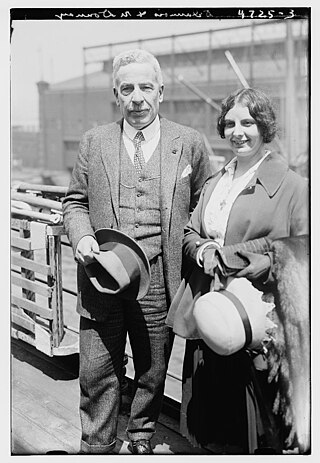
Charles Maurice Donnay was a French dramatist.
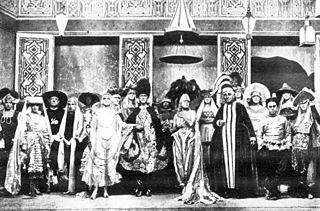
Charles Cuvillier was a French composer of operetta. He won his greatest successes with the operettas La reine s'amuse and with The Lilac Domino, which became a hit in 1918 in London.

Pierre-Eugène Veber was a French playwright and writer.
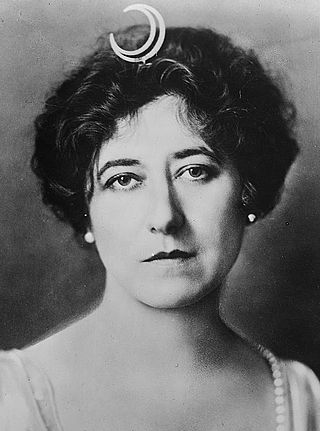
Gabrielle Dorziat was a French stage and film actress. Dorziat was a fashion trend setter in Paris and helped popularize the designs of Coco Chanel. The Théâtre Gabrielle-Dorziat in Épernay, France is named for her.

School for Coquettes is a 1935 French comedy film directed by Pierre Colombier and starring Raimu, André Lefaur and Renée Saint-Cyr. It is based on the 1918 play School for Coquettes by Marcel Gerbidon and Paul Armont. It was shot at the Joinville The film's sets were designed by the art director Jacques Colombier. Future star Ginette Leclerc had a small supporting role.
School for Coquettes is 1918 French comedy play by Paul Armont and Marcel Gerbidon. A young working class woman attends a school to turn her into a coquette in the hope it will allow her to rise up the social scale. It was first performed at the Grand Guignol Theatre in Paris.

School for Coquettes is a 1958 French comedy film directed by Jacqueline Audry and starring Dany Robin, Fernand Gravey and Bernard Blier. It was based on the 1918 play School for Coquettes by Marcel Gerbidon and Paul Armont.
Jean Le Poulain was a French stage actor and stage director.

Jacques Baumer, was a French theatre director and comedian.
Christian Gérard Mazas, known as Christian-Gérard, was a French stage and film actor as well as theater director.
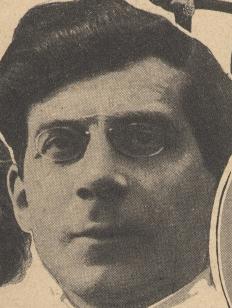
Georges Berr in Paris, was a French actor and dramatist, a member and sociétaire of the Comédie-Française from 1886 to 1923.

Francis Joffo is a French actor, writer and theater director who essentially played for television, particularly in the Au théâtre ce soir program which made him famous. He is also a dramatist and playwright.

The Théâtre Édouard VII, also called théâtre Édouard VII – Sacha Guitry, is located in Paris between the Madeleine and the Palais Garnier in the 9th arrondissement. The square, in which there is a statue of King Edward VII, was opened in 1911. The theatre itself, which was originally a cinema, was named in the honour of Edward VII, as he was nicknamed the "most Parisian of all Kings", appreciative of French culture. In the early to mid 1900s, under the direction of Sacha Guitry, the theatre became a symbol of anglo-franco friendship, where French people could discover and enjoy Anglo Saxon works.
Alfred-Adolphe Pasquali was a French actor and theatre director.

The Apollo is a former French music-hall venue located at 20 rue de Clichy in the 9th arrondissement of Paris.
Alfred Delilia, full name Alfred Georges Marie Delilia, was a French playwright, journalist, and chansonnier.

René Clermont was a French stage and film actor as well as a playwright.
Marcel Auguste Antoine Cariven, was a French conductor, particularly associated with light music and with operetta.

Amélie Diéterle was a French actress and opera singer. She was one of the popular actresses of the Belle Époque until the beginning of the Années Folles. Amélie Diéterle inspired the poets Léon Dierx and Stéphane Mallarmé and the painters Auguste Renoir, Henri de Toulouse-Lautrec, and Alfred Philippe Roll.
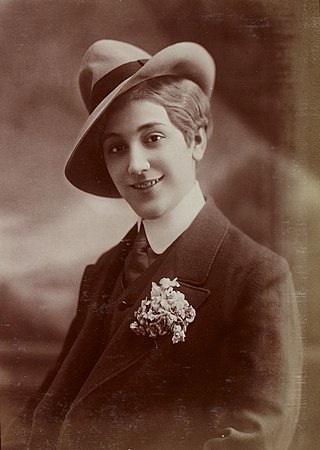
Aimée Campton or Miss Campton was a dancer, music hall artist, postcard beauty and a French actress of English origin. A silent film actress, she played the lead role in a series of French-made Maud films in the 1910s.















